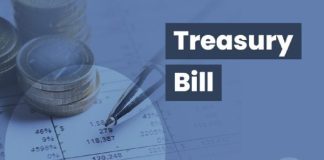The new borrowing approvals in the past four months granted to the Nigerian government by the Senate will raise Nigeria debt stock to about N40.19 trillion.
According to BizWatch Nigeria’s analyses, every Nigerian will be owing about N192,296.65 in terms of debt per capita as the country’s total public debt rises to N40.19 trillion as of July 16.
Debt per capita is calculated as the total public debt of a country divided by the country’s population.
Nigeria’s population is estimated to be 209 million, according to the World Poverty Clock.
Data from the Debt Management Office (DMO) indicated that Africa’s biggest economy’s debt increased to N33.1 trillion in March 2021, from N32.91 trillion in December 2020.
This means Nigeria grew its debt burden by N191 billion in the first three months of the year.
However, fresh dollar and euro-denominated borrowing approvals granted to the President Muhammadu Buhari since April this year is equivalent to N7 trillion.
Breakdown Of New External Loan Approvals
In April this year, the Senate approved foreign loans of $1.5 billion (about N571.5billion) and €995 million (about N528.4billion) which amount to N1.1trillion for the federal government.
READ ALSO: Senate Okays Buhari’s $8.3bn, €490m Loan Requests
The federal government said the loans will be used to execute priority projects and support state governments in stimulating their economy, adversely hit by the COVID-19 pandemic.
In the first week in July, the National Assembly approved the borrowing $6.1 billion loan request, which is equivalent to about N2.343 trillion.
The loan, according to Buhari, will be raised from multilateral and bilateral tenders as well as the international capital market and will be used to part-finance the deficit in the 2021 budget.
The president had said the loan will be used to fund projects from priority sectors of the economy such as power, transportation, agriculture and rural development, education, health, provision of counterpart funding for multilateral and bilateral projects, defence and water resources.”
Just last week, the National Assembly approved another $8.3 billion and plus €490 from external sources.
Buhari stated that the loans will be used for the financing of projects across the six geo-political zones of the country.
“The listed projects form part of the 2018-2020 External Borrowing Plan covered both the Federal and States Governments’ Projects and are geared towards the realization of the Nigerian Economic Sustainability Plan that cut across key sectors such as Infrastructure, Health, Agriculture and Food Security, Energy, Education, and Human Capital Development and COVID-19 Response efforts,” the president said in a letter.
“A summary of some key projects in each of the six geo-political zones and a summary on the expected impacts on the socio-economic development of each of the six geo-political zones.”
We Need To Protest Publicly Against Rising Debts – Economist
A professor of economics at the Olabisi Onabanjo University (OOU) , Ago-Iwoye, Ogun State, Sheriffdeen Tella, while speaking with BizWatch Nigeria on Sunday expressed worry over the external loans being borrowed by the Nigerian government.
According to him, Nigerians need to organize a public protest against the borrowing spree of the federal government which had been become unsustainable.
READ ALSO: Senate Approves FG’s $1.5bn, €995m External Loan Request
He stated the huge debt that had been incurred by the government will jeopardise the revenue-generating potential of the government and the future of young Nigerians.
Tella said the revenue generated by the government was not sufficient to meet its expenditure and also service debt.
He advised the government to focus on creating wealth rather than borrowing.
“If they need money badly, they should borrow domestically,” he added.
Halt Borrowing Now, Moghalu Advises
A presidential aspirant, Prof. Kingsley Moghalu, has has advised the Nigerian Government to put an end to the constant borrowing to finance the government expenses.
In a statement recently, he said the former Central Bank of Nigeria (CBN) deputy governor said the huge debt is exposing the country to a possible future debt peonage, considering that external debt by 2015 was $10.31 billion and in six years, has doubled with the possibility that it would still go up by 2023.
READ ALSO: Breaking: Senate Okays Buhari’s N2.3tn Loan Request
Moghalu described the debt burden as unprecedented, unsustainable and alarming.
He said, “The total outstanding public debt stock increased by 173per cent in the same period, from N12.11 trillion to N33.10 trillion.
“On the average, over N3.6 trillion is being added to the public debt yearly. This massive borrowing and the infrastructure investment that has been used to justify it, have grossly under-performed.”














